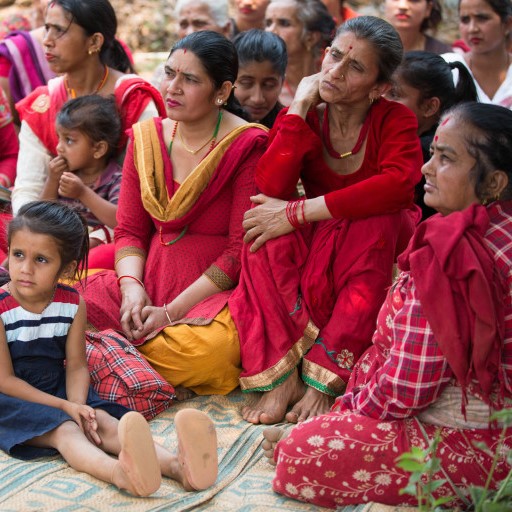In 2015, historic twin earthquakes struck Nepal and affected 14 districts with more than 8,790 casualties and 22,300 injuries. The Accountability Lab responded to an apparent gap between government bodies, civil society, and citizens by facilitating feedback loops that cycled information among community stakeholders through its mobile Citizen Helpdesks Platform. The model of mobile Citizen Helpdesks provides a framework to listen, collect, and interpret the concerns of communities, question, and validate these concerns with relevant stakeholders, and then disseminate the information back to the community. Over time, our community agents known as Community Frontline Associates (CFAs) have noticed a transition from earthquake to migration-related cases. Left with few economic opportunities in Nepal, citizens were moving abroad in pursuit of employment.
Today remittances makeup 31.3% of Nepal’s GDP. Gender disaggregated data for 2017 on foreign migration based on labour permits issued estimates 362,766 of these workers are male and 20,105 are female. At first glance, migration seems to affect men most. Yet, examining this more closely with a gendered lens reveals that migration, particularly in Nepal, holds significant implications for women.
Reframing these data sets through a gendered perspective has helped the Lab to identify key challenges for women and families — not just the men working abroad — and partner with organizations that can effectively support them in resolving migration-related issues. It is important that migration related policies focus on supporting the worker going abroad as well as his family back home. The Lab’s mobile Citizen Helpdesks connect citizens with partner organizations to assist with resolving these challenges. For example, one of the Lab’s CFAs recently received a case of a man who had had to Saudi Arabia as a migrant worker. The man’s wife was notified that he had died and she was left unsure what to do – where to T retrieve the body nor if there was any government compensation available. The CFA, was able to build rapport and inspire trust with the family and by working with the Center for Migration and International Relations (CMIR) was able to help answer questions, return the body for burial, and help the wife to receive compensation from the Foreign Employment Promotion Board’s welfare fund. She was also supported in initiating the process for her children to access a government scholarship scheme.
The Lab has found that although the data collected is important, it is the manner in which it is collected that is most influential. Given Nepal’s conservative social structure, having female CFAs ask women in their communities about challenges or concerns is beneficial, particularly when dealing with sensitive topics like migration and family challenges. People have consistently expressed a greater willingness to share their stories with a CFA who is similar to them – in terms of gender and local community ties. Building trust is a critical component to effective data collection as problems related to migration are deeply stigmatized and even taboo to mention.
Conversations on closing the gender data gap too often focus solely on the data collection and analysis activities, often foregoing an important step of sharing results back with the community. Easily digestible, actionable information in the form of infographics, bulletins or newsletters, and radio programs go a long way in engaging community members in solving family and community challenges. And the dissemination of this information to all community stakeholders – including local officials and elected representatives– has motivated engagement and support by local government. For example, in one community, local officials have banded together in commitment to work toward creating safe and supportive migration policies. And in another municipality, a CFA was selected to join the government policy drafting committee to ensure the needs and concerns of local community members was considered throughout.
In working to close the gender data gap, we – collectors of data – should prioritize our accountability to the communities we collect data from. This means continuously feeding relevant updates on the data collected, trends, how it is being used, and actions taken to community back to the community members themselves.
